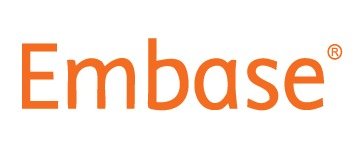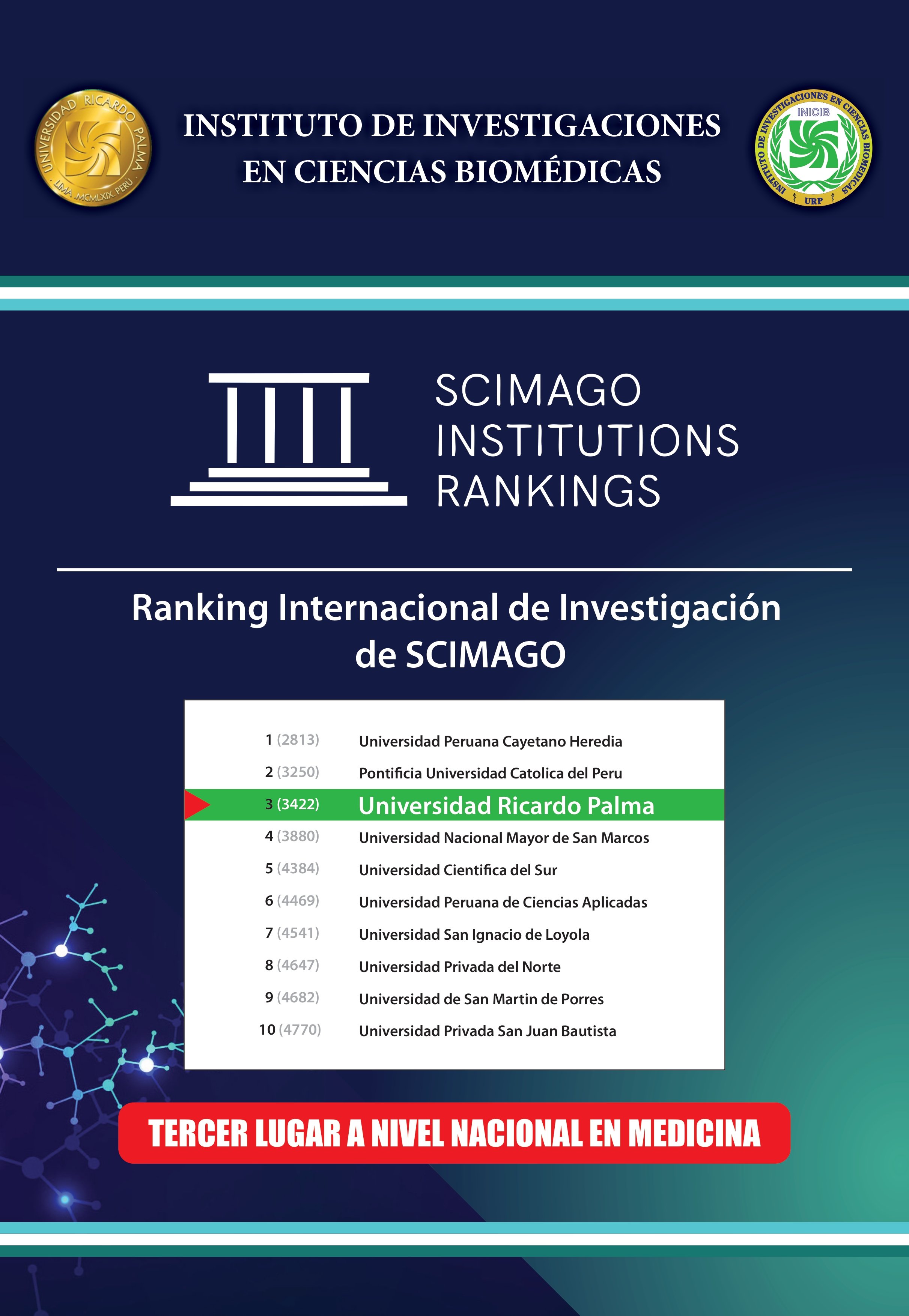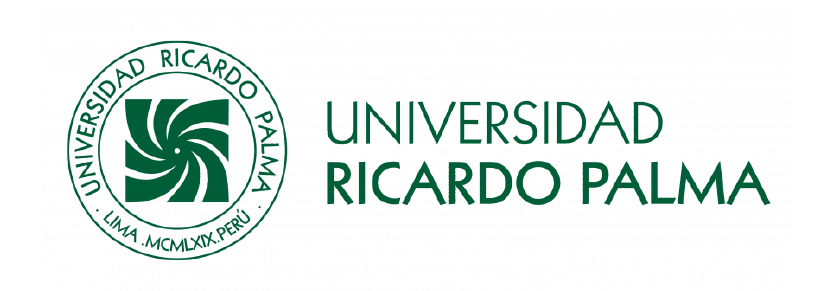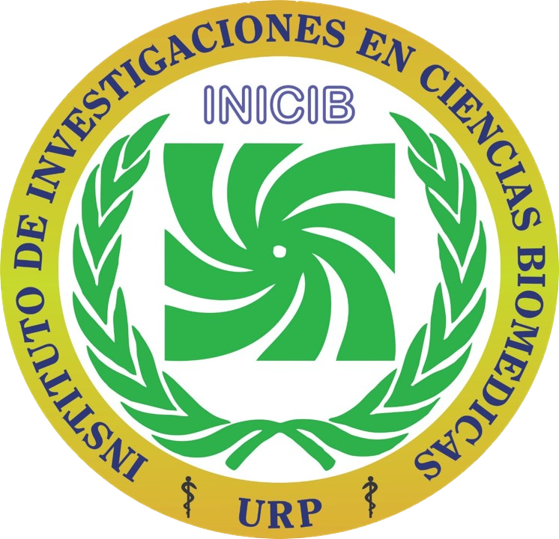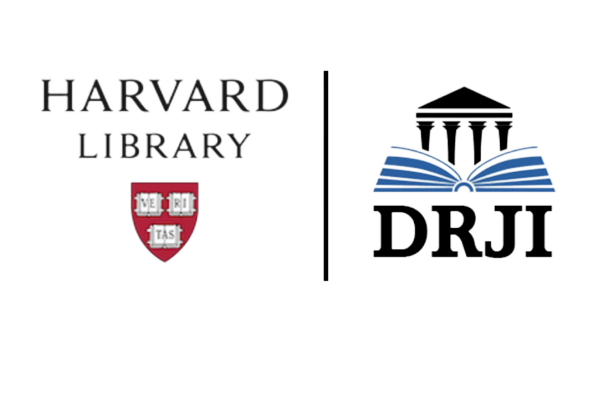Lifestyles and diet related to nutritional status and the risk of DM2 in young women from two Colombian universities
Estilos de vida y alimentación relacionados con el estado nutricional y el riesgo de DM2 en mujeres jóvenes de dos universidades colombianas
DOI:
https://doi.org/10.25176/RFMH.v23i3.5805Keywords:
lifestyle, nutritional status, risk, diabetes mellitus type 2, studentsAbstract
Objective: To analyze the lifestyles and diet related to nutritional status and the risk of DM2 and in female students of two Colombian universities.Methods: a descriptive, cross-sectional, multidimensional and exploratory study, carried out in a sample of 220 women, NyD students selected by random medsampling of proportions[1]. A questionnaire was applied to identify sociodemographic variables, lifestyles related to food and DM2 risk according to the FINDRISC test; BMI, waist circumference, fat percentage, and active body substance index (IAKS) were determined. Bivariate analysis was performed using Statgraphics v.16, the chi2 test was applied with 95% confidence and statistical significance (p <0.05).Results: Overweight and obesity according to BMI (21.4%) showed statistical significance with the frequency of consumption of sugary drinks, packaged products, sugars and sweets, fast foods and alcoholic beverages; These two eating practices were related to very high cardiovascular risk by waist circumference and excessive fat percentage, which also presented significance with excessive screen time; the IAKS was related to the classification of physical activity. According to the FINDRISC test, 91% had DM2 risk factors; 20.5% presented medium risk and 2.3% high.Conclusions: Lifestyle and diet were related to anthropometric indicators: body weight, fat distribution, and body composition; are risk factors for the development of DM2 in young women. It is necessary to promote protective factors to maintain a healthy weight.
Downloads
References
Flórez-Escobar IC, Carvajal-Suárez L, Botía-Rodriguez I. Estilos de vida de estudiantes universitarios del programa de nutrición y dietética. Duazary [Internet] 2023 [citado 2023 jul 8];20(1):34–44. Available from: https://doi.org/10.21676/2389783X.5107
Telleria-Aramburu N, Arroyo-Izaga M. Risk factors of overweight/obesity-related lifestyles in university students: Results from the EHU12/24 study. British Journal of Nutrition [Internet] 2022 [citado 2023 jul 8];127(6):914–26. Available from: https://doi.org/10.1017/S0007114521001483
Maldonado-Gómez AR, Gallegos-Torres RM, García-Aldeco A, Hernández-Segura GA. Epidemiología de sobrepeso y obesidad en estudiantes universitarios de Chilpancingo, Guerrero. RICS Revista Iberoamericana de las Ciencias de la Salud [Internet] 2017 [citado 2023 jul 8];6(12):1–5. Available from: https://doi.org/10.23913/rics.v6i12.55
Tran DMT, Silvestri-Elmore A, Sojobi A. Lifestyle Choices and Risk of Developing Cardiovascular Disease in College Students. Int J Exerc Sci [Internet] 2022 [citado 2023 jul 8];15(2):808–19. Available from: https://digitalcommons.wku.edu/ijes/vol15/iss2/9
Ruano C, Lucumi E, Albán J, Arteaga S, Fors M. Obesity and cardio-metabolic risk factors in Ecuadorian university students. First report, 2014–2015. Diabetes & Metabolic Syndrome: Clinical Research & Reviews [Internet] 2018 [citado 2023 jul 5];12(6):917–21. Available from: https://doi.org/10.1016/J.DSX.2018.05.015
Bernabe-Ortiz A, Perel P, Miranda JJ, Smeeth L. Diagnostic accuracy of the Finnish Diabetes Risk Score (FINDRISC) for undiagnosed T2DM in Peruvian population. Prim Care Diabetes [Internet] 2018 [citado 2021 abr 27];12(6):517–25. Available from: https://doi.org/10.1016/j.pcd.2018.07.015
Meijnikman AS, De Block CEM, Verrijken A, Mertens I, Van Gaal LF. Predicting type 2 diabetes mellitus: A comparison between the FINDRISC score and the metabolic syndrome. Diabetol Metab Syndr [Internet] 2018 [citado 2021 abr 27];10(1):12. Available from: https://doi.org/10.1186/s13098-018-0310-0
Barim EM, McLellan KCP, Ribeiro RS, de Carvalho JAM, Lindström J, Tuomilehto J, et al. Translation and cultural adaptation into Brazilian Portuguese of the Finnish diabetes risk score (Findrisc) and reliability assessment. Rev Bras Epidemiol [Internet] 2020 [citado 2021 jun 17];23:1–13. Available from: https://doi.org/10.1590/1980-549720200060
Minsalud. Guía de práctica clínica para el diagnóstico, tratamiento y seguimiento de la diabetes mellitus tipo 2 en la población mayor de 18 años. [Internet]. Bogotá: Minsalud, Colciencias; 2016 [citado 2023 mar 18]. Available from: https://www.minsalud.gov.co/sites/rid/Lists/BibliotecaDigital/RIDE/DE/CA/gpc-profesionales-diabetes-mellitus-tipo2-poblacion-mayor-18-anos.pdf
Instituto Colombiano de Bienestar Familiar. Encuesta Nacional de Situación Nutricional, ENSIN [Internet]. Primera edición. 2015 [citado 2023 jul 8]. Available from: https://www.minsalud.gov.co/sites/rid/Lists/BibliotecaDigital/RIDE/VS/ED/GCFI/libro-ensin-2015.pdf
Norton KI. Standards for Anthropometry Assessment [Internet]. En: Kinanthropometry and Exercise Physiology. London: Routledge; 2018 [citado 2023 jul 8]. página 68–137.Available from: https://doi.org/10.4324/9781315385662-4
Ministerio de Salud de Colombia. Resolución Número 2465 de 2016 [Internet]. 2016 [citado 2023 jul 8]. Available from: https://www.minsalud.gov.co/Normatividad_Nuevo/Resolucion%202465%20de%202016.pdf.
Sáez Madain P. Revisión analítica sobre la utilización de los pliegues cutáneos en la cineantropometría. Las fórmulas bi-compartimentales de división corporal basadas en la medida del panículo adiposo. PubliCE [Internet] 2000 [citado 2021 ago 22];0. Available from: https://g-se.com/revision-analitica-sobre-la-utilizacion-de-los-pliegues-cutaneos-en-la-cineantropometria.-las-formulas-bi-compartimentales-de-division-corporal-basadas-en-la-medida-del-paniculo-adiposo-846-sa-E57cfb27191a48 .
Durnin JVGA, Womersley J. Body fat assessed from total body density and its estimation from skinfold thickness: measurements on 481 men and women aged from 16 to 72 Years. Br J N [Internet] 1974 [citado 2023 jul 8]; 32(01):77–97. Available from: https://doi.org/10.1079/bjn19740060
Carvajal Veitia W. Pasado, presente y futuro de la evaluación de la composición corporal en deportistas cubanos. An Antropol [Internet] 2021 [citado 2023 jul 11];55(2):237. Available from: https://doi.org/10.22201/iia.24486221e.2021.76634
Ross R, Neeland IJ, Yamashita S, Shai I, Seidell J, Magni P, et al. Waist circumference as a vital sign in clinical practice: a Consensus Statement from the IAS and ICCR Working Group on Visceral Obesity. Nat Rev Endocrinol [Internet] 2020 [citado 2023 jul 8];16:177–89. Available from: https://doi.org/10.1038/s41574-019-0310-7
Medina CR, Urbano MB, De Jesús Espinosa A, López ÁT. Eating habits associated with nutrition-related knowledge among university students enrolled in academic programs related to nutrition and culinary arts in Puerto Rico. Nutrients [Internet] 2020 [citado 2023 jul 8];12(5). Available from: https://doi.org/10.3390/nu12051408
Solera-Sánchez A, Gamero-Lluna A. Healthy habits of health sciences students and others from different fields: A comparative study. Rev Esp Nutr Hum Diet [Internet] 2019 [citado 2023 jul 8];23(4). Available from: https://doi.org/10.14306/renhyd.23.4.762
Al-Shudifat AE, Al-Shdaifat A, Al-Abdouh AA, Aburoman MI, Otoum SM, Sweedan AG, et al. Diabetes Risk Score in a Young Student Population in Jordan: A Cross-Sectional Study. J Diabetes Res [Internet] 2017;2017:1–5. Available from: https://doi.org/10.1155/2017/8290710
Aris A, Khalid MMZ, Yahaya H, Yoong LO, Ying Ng Qiu. Type 2 Diabetes Risk Among University Students in Malaysia. Curr Diabetes Rev [Internet] 2020 [citado 2021 jul 29];16(4):387–94. Available from: https://doi.org/10.2174/1573399815666190712192527
Algadheeb AS, Basham KM, Alshahrani MA, Alshamrani AA, Alzahrani A, Algadheeb SS, et al. Assessing the Risk and Awareness of Type 2 Diabetes Mellitus Among Medical Students in Riyadh, Saudi Arabia. Cureus [Internet] 2023 [citado 2023 jul 8];15(5):1–7. Available from: https://doi.org/10.7759/cureus.39087
Nnamudi AC, Orhue NEJ, Ijeh II. Assessment of the FINDRISC tool in predicting the risk of developing type 2 diabetes mellitus in a young adult Nigerian population. Bull of the Natl Res Cent [Internet] 2020 [citado 2023 jul 9]; 44(1). Available from: https://doi.org/10.1186/s42269-020-00440-7
Pertseva N, Rokutova M, Shehadeh S, Saido R. Nutritional status and risk of diabetes mellitus type 2 among medical students. Rom J Diabetes Nutr Metab Dis [Internet] 2021 [citado 2023 jul 8];28(1):54–7. Available from: https://www.rjdnmd.org/index.php/RJDNMD/article/view/759/605
Antwi J, Lavin R, Sullivan S, Bellavia M. Perception of and risk factors for type 2 diabetes among students attending an upstate New York college: a pilot study. Diabetol Metab Syndr [Internet] 2020 [citado 2023 jul 8]; 12(1):25. Available from: https://doi.org/10.1186/s13098-020-00535-1
Pineda KLL, González-Suárez CB, Espino RVS, Escuadra CJ, Balid–Attwell SA, Devora KB, et al. Eating Habits of College Students in Relation to Obesity. Journal of Medicine, UST [Internet] 2020 [citado 2023 jul 8];4(2):500–9. Available from: https://doi.org/10.35460/2546-1621.2019-0018
Parra-Soto S, Araya C, Morales G, Araneda Flores J, Landaeta-Díaz L, Murillo AG, et al. Asociación entre consumo de alcohol y exceso de peso entre estudiantes universitarios de América Latina. Rev Chil Nut [Internet] 2023 [citado 2023 jul 8];50(2):186–93. Available from: http://dx.doi.org/10.4067/S0717-75182023000200186
Booranasuksakul U, Singhato A, Rueangsri N, Prasertsri P. Association between alcohol consumption and body mass index in university students. Asian Pacific Island Nursing Journal [Internet] 2019 [citado 2023 jul 8];4(1):57–65. Available from: https://www.ncbi.nlm.nih.gov/pmc/articles/PMC6484200/
Legetic B, Medici A, Hernández-Ávila M, Alleyne G, Hennis A, Complementario V. Las dimensiones económicas de las enfermedades no transmisibles en América Latina y el Caribe [Internet]. Tercera. 2017 [citado 2021 ago 21]. Available from: https://iris.paho.org/bitstream/handle/10665.2/33994/9789275319055-spa.pdf?sequence=1&isAllowed=y
Zheng Y, Ley SH, Hu FB. Global aetiology and epidemiology of type 2 diabetes mellitus and its complications. Nat Rev Endocrinol [Internet] 2018 [citado 2021 jun 19];14(2):88–98. Available from: https://doi.org/10.1038/nrendo.2017.151
Kobayashi S, Asakura K, Suga H, Sasaki S. Living status and frequency of eating out-of-home foods in relation to nutritional adequacy in 4,017 Japanese female dietetic students aged 18-20 years: A multicenter cross-sectional study. J Epidemiol [Internet] 2017 [citado 2023 jul 8];27(6):287–93. Available from: https://doi.org/10.1016/j.je.2016.07.002
Jølle A, Midthjell K, Holmen J, Tuomilehto J, Carlsen SM, Shaw J, et al. Impact of sex and age on the performance of FINDRISC: The HUNT study in Norway. BMJ Open Diabetes Res Care [Internet] 2016 [citado 2021 abr 27];4(1). Available from: https://doi.org/10.1136/bmjdrc-2016-000217
Durán S, Crovetto M, Espinoza V, Mena F, Oñate G, Fernández M, et al. Caracterización del estado nutricional, hábitos alimentarios y estilos de vida de estudiantes universitarios Chilenos: Estudio multicéntrico. Rev Med Chil [Internet] 2017;145(11):1403–11. Available from: http://www.scielo.cl/scielo.php?script=sci_arttext&pid=S0034-98872017001101403&lng=en&nrm=iso&tlng=en
Maza-Avila FJ, Caneda-Bermejo MC, Vivas-Castillo AC. Hábitos alimenticios y sus efectos en la salud de los estudiantes universitarios. Una revisión sistemática de la literatura. Psicogente [Internet] 2022 [citado 2023 jul 9];25(47):1–31. Available from: https://doi.org/10.17081/psico.25.47.4861
Torres-Mallma C, Trujillo-Valencia C, Urquiza-Díaz AL, Salazar-Rojas R, Taype-Rondán A. Hábitos alimentarios en estudiantes de medicina de primer y sexto año de una universidad privada de Lima, Perú. Rev chil nut [Internet] 2016 [citado 2023 jul 11];43(2):6–6. Available from: http://dx.doi.org/10.4067/S0717-75182016000200006
Becerra-Bulla F, Vargas-Zarate M. Estado nutricional y consumo de alimentos de estudiantes universitarios admitidos a nutrición y dietética en la Universidad Nacional de Colombia. Rev salud pública [Internet] 2015 [citado 2023 jul 11];17(5):762–75. Available from: https://doi.org/10.15446/rsap.v17n5.43570

Downloads
Published
How to Cite
Issue
Section
License
Copyright (c) 2023 Revista de la Facultad de Medicina Humana

This work is licensed under a Creative Commons Attribution 4.0 International License.







